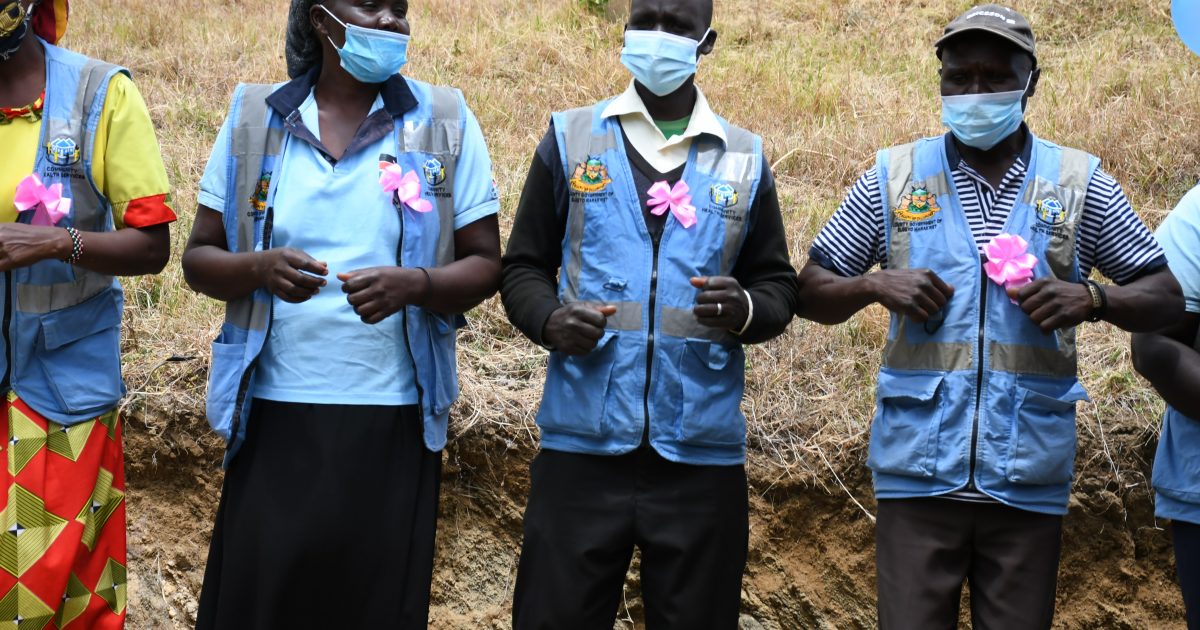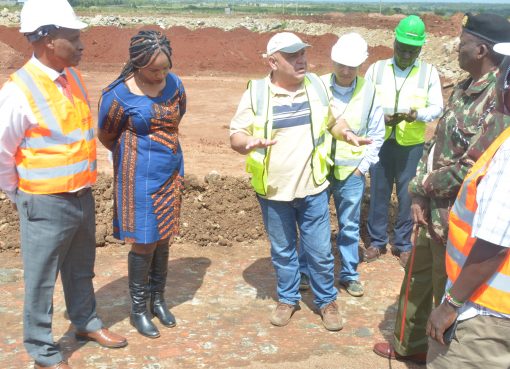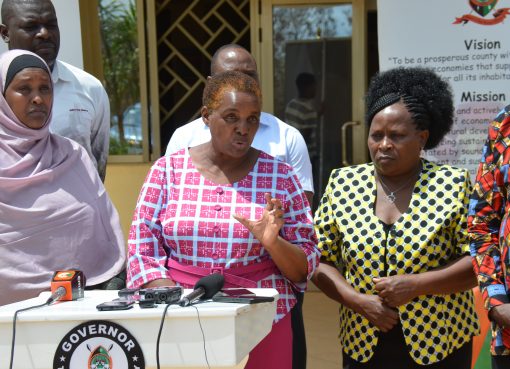Noah Kaino from Kipsaiya location of Kapsowar ward, Elgeyo Marakwet county had never envisioned himself attending antenatal clinics. It was unheard of even to be found near the hospital’s “women’s area”. Like many other men from various African communities, antenatal visits and all that come with it is the woman’s business.
However, continuous training from World Vision Kenya under the programme ‘men care’ has made Kaino, a father of four to change his mentality on parenting. “I now know that the health of my unborn child and the mother are my responsibility, I must pay closer attention to it,” he says.
Kaino says he now accompanies his wife for every antenatal clinic she makes. He is keen to note the dietary needs of his wife, as advised by health staff during such visits, because he has learnt as the head of the family, he has to provide enough money to buy the required foods to ensure that the mother and the unborn child receive the best possible nutritional requirements.
He added that before the training the idea of his wife practicing any form of family planning was an abomination which often resulted in quarrels between the couple until he learnt the importance of spacing their children from the “men care” programme.
“Before the training, most men in our community believed that any woman who practices family planning was promiscuous,” he said.
According to the Kapsowar sub county reproductive health officer David Chemwolo who has been conducting the trainings on behalf of World Vision, the involvement of men in maternal and child health has seen an improvement in the number of women delivering their babies at health facilities.
“The men are now taking their wives to deliver their babies at health facilities as opposed to before when they used to let them give birth at home,” Chemwolo said.
He added that men have also taken it upon themselves to ensure that their children complete their immunization programme, which has greatly improved the children’s health.
All this has been made possible by the continuous training of the community seeking services at the Sisiya dispensary located on the scenic Kerio escarpment overlooking the Kerio valley in Marakwet West sub-county by World Vision Kenya.
The dispensary, started in 2013 by the county government was meant to offer health services to about 6,300 residents of Kipsaiya location who lacked basic health services, which led to many of them suffering from preventable diseases. The government aimed at solving this problem.
According to the area public health officer Edwin Kipchumba, very few people used to seek medical services from health facilities before the dispensary was started and instead relied on traditional self-treatment at home.
Since 2016, when World Vision started sponsoring the community training programme at the dispensary, changes have continued to be experienced for the better.
Kipchumba said the continuous training of the Community Health Volunteers (CHV’s) by World Vision has not only improved the health status of the residents but also greatly assisted the health personnel in the delivery of services.
After being trained, CHVs then sensitise residents on matters of health at household level, developing more understanding on health needs and services hence making health personnel and residents relate with ease.
And using the same CHVs, the organization has been able to health status of children in the area through improved diet and immunization.
A baseline survey conducted in 2016 showed that 30% of children under five years in Elgeyo Marakwet county were stunted while 12.6% were underweight, percentages way higher than the national average which is 26% (stunted) and 11% (underweight) respectively.
This survey, according to the Elgeyo Marakwet world vision manager Jackline Kirui prompted the organization to start the Enhancing Nutrition Services to Improve Maternal and Child Health (Enrich) programme in the organization’s quest to promote health in the area, and which the CHVs were to incorporate with their other activities.
“Under this programme, World Vision has been providing Micro Nutrient Powder Supplements (MNPS) in addition to the introduction of orange flesh sweet potatoes and beans which are fortified with vitamins to address the challenge,” she said.
Sisiya Health facility was among the 111 health facilities in the county which benefitted from this assistance.
Kipchumba said the CHV’s have been instrumental in ensuring the MNPS reach to the mothers and children. “As they take the supplements to residents, they also provide deworming tablets to them. Due to this initiative, the health personnel believe that deworming that stood at zero per cent in the area now almost stands at 100 per cent,” he said.
He added that with the training offered by World Vision, the CHV’s have also managed to train the community on how to treat water at the household level increasing consumption of treated water in the area from 37 percent to 87 percent and thus greatly reducing waterborne diseases.
The PHO said the same training on the importance of having latrines has helped improve latrine coverage from 54 percent to 92 percent and they are hoping that soon they will hit the 100 percent mark with every home having a pit latrine.
The clinical officer in charge at Sisiya dispensary Gladys Kiplagat said pregnant mothers now start attending antenatal clinic by the 4th or 5th month into their pregnancy as opposed to before the World vision program when they started very late or never attended at all.
She says as part of their assistance, world vision has already provided the first delivery bed for the dispensary and they were now awaiting the completion of the sewerage treatment plant for the dispensary by the county government before they start deliveries. They hope the county government will chip in and provide more delivery beds to the dispensary.
“We have already received the funding from the county and are only awaiting the tendering before the works on the treatment plant can start,” she said.
Unfortunately, the sponsorship of the Enrich programme by World Vision has come to an end and as Mrs. Kurui says, “like a child, the weaning process is over and the child should now be able to walk on its own”.
Noting that economic empowerment was key in ensuring that the community is able to meet its health needs, the manager advised the community to think of strategies which will bring about economic empowerment to them.
Mrs. Kurui said the organization has been engaging with the county government so that they can continue providing the MNPS to children and pregnant mothers even as the Enrich programme comes to an end.
The Kapsowar ward MCA, Shadrack Lulley, who is also the chairman Health committee in the assembly said he will lobby his colleagues to allocate funds to the programme to address challenges of stunted growth.
by Alice Wanjiru





